Delta Airlines 2003 Annual Report Download - page 27
Download and view the complete annual report
Please find page 27 of the 2003 Delta Airlines annual report below. You can navigate through the pages in the report by either clicking on the pages listed below, or by using the keyword search tool below to find specific information within the annual report.-
 1
1 -
 2
2 -
 3
3 -
 4
4 -
 5
5 -
 6
6 -
 7
7 -
 8
8 -
 9
9 -
 10
10 -
 11
11 -
 12
12 -
 13
13 -
 14
14 -
 15
15 -
 16
16 -
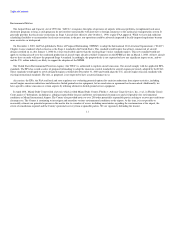 17
17 -
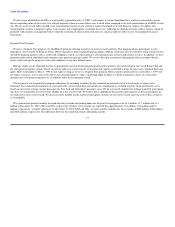 18
18 -
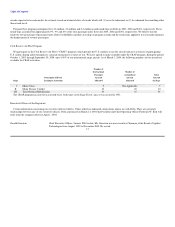 19
19 -
 20
20 -
 21
21 -
 22
22 -
 23
23 -
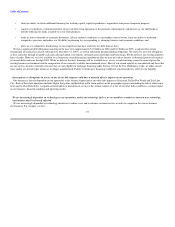 24
24 -
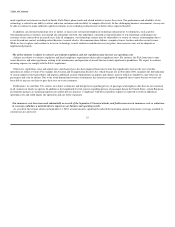 25
25 -
 26
26 -
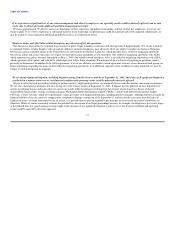 27
27 -
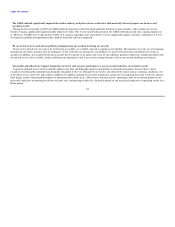 28
28 -
 29
29 -
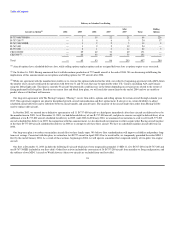 30
30 -
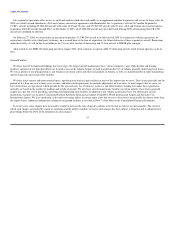 31
31 -
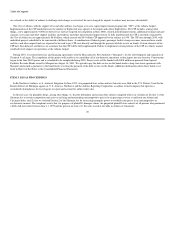 32
32 -
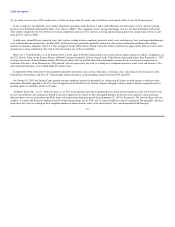 33
33 -
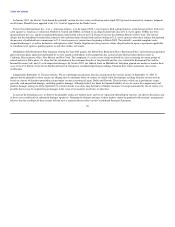 34
34 -
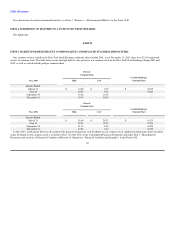 35
35 -
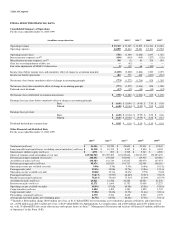 36
36 -
 37
37 -
 38
38 -
 39
39 -
 40
40 -
 41
41 -
 42
42 -
 43
43 -
 44
44 -
 45
45 -
 46
46 -
 47
47 -
 48
48 -
 49
49 -
 50
50 -
 51
51 -
 52
52 -
 53
53 -
 54
54 -
 55
55 -
 56
56 -
 57
57 -
 58
58 -
 59
59 -
 60
60 -
 61
61 -
 62
62 -
 63
63 -
 64
64 -
 65
65 -
 66
66 -
 67
67 -
 68
68 -
 69
69 -
 70
70 -
 71
71 -
 72
72 -
 73
73 -
 74
74 -
 75
75 -
 76
76 -
 77
77 -
 78
78 -
 79
79 -
 80
80 -
 81
81 -
 82
82 -
 83
83 -
 84
84 -
 85
85 -
 86
86 -
 87
87 -
 88
88 -
 89
89 -
 90
90 -
 91
91 -
 92
92 -
 93
93 -
 94
94 -
 95
95 -
 96
96 -
 97
97 -
 98
98 -
 99
99 -
 100
100 -
 101
101 -
 102
102 -
 103
103 -
 104
104 -
 105
105 -
 106
106 -
 107
107 -
 108
108 -
 109
109 -
 110
110 -
 111
111 -
 112
112 -
 113
113 -
 114
114 -
 115
115 -
 116
116 -
 117
117 -
 118
118 -
 119
119 -
 120
120 -
 121
121 -
 122
122 -
 123
123 -
 124
124 -
 125
125 -
 126
126 -
 127
127 -
 128
128 -
 129
129 -
 130
130 -
 131
131 -
 132
132 -
 133
133 -
 134
134 -
 135
135 -
 136
136 -
 137
137 -
 138
138 -
 139
139 -
 140
140 -
 141
141 -
 142
142 -
 143
143 -
 144
144 -
 145
145 -
 146
146 -
 147
147 -
 148
148 -
 149
149 -
 150
150 -
 151
151 -
 152
152 -
 153
153 -
 154
154 -
 155
155 -
 156
156 -
 157
157 -
 158
158 -
 159
159 -
 160
160 -
 161
161 -
 162
162 -
 163
163 -
 164
164 -
 165
165 -
 166
166 -
 167
167 -
 168
168 -
 169
169 -
 170
170 -
 171
171 -
 172
172 -
 173
173 -
 174
174 -
 175
175 -
 176
176 -
 177
177 -
 178
178 -
 179
179 -
 180
180 -
 181
181 -
 182
182 -
 183
183 -
 184
184 -
 185
185 -
 186
186 -
 187
187 -
 188
188 -
 189
189 -
 190
190 -
 191
191 -
 192
192 -
 193
193 -
 194
194 -
 195
195 -
 196
196 -
 197
197 -
 198
198 -
 199
199 -
 200
200 -
 201
201 -
 202
202 -
 203
203 -
 204
204 -
 205
205 -
 206
206 -
 207
207 -
 208
208 -
 209
209 -
 210
210 -
 211
211 -
 212
212 -
 213
213 -
 214
214 -
 215
215 -
 216
216 -
 217
217 -
 218
218 -
 219
219 -
 220
220 -
 221
221 -
 222
222 -
 223
223 -
 224
224 -
 225
225 -
 226
226 -
 227
227 -
 228
228 -
 229
229 -
 230
230 -
 231
231 -
 232
232 -
 233
233 -
 234
234 -
 235
235 -
 236
236 -
 237
237 -
 238
238 -
 239
239 -
 240
240 -
 241
241 -
 242
242 -
 243
243 -
 244
244 -
 245
245 -
 246
246 -
 247
247 -
 248
248 -
 249
249 -
 250
250 -
 251
251 -
 252
252 -
 253
253 -
 254
254 -
 255
255 -
 256
256 -
 257
257 -
 258
258 -
 259
259 -
 260
260 -
 261
261 -
 262
262 -
 263
263 -
 264
264 -
 265
265 -
 266
266 -
 267
267 -
 268
268 -
 269
269 -
 270
270 -
 271
271 -
 272
272 -
 273
273 -
 274
274 -
 275
275 -
 276
276 -
 277
277 -
 278
278 -
 279
279 -
 280
280 -
 281
281 -
 282
282 -
 283
283 -
 284
284 -
 285
285 -
 286
286 -
 287
287 -
 288
288 -
 289
289 -
 290
290 -
 291
291 -
 292
292 -
 293
293 -
 294
294 -
 295
295 -
 296
296 -
 297
297 -
 298
298 -
 299
299 -
 300
300 -
 301
301 -
 302
302 -
 303
303 -
 304
304
 |
 |

Table of Contents
If we experience a significant loss of our senior management and other key employees, our operating results could be adversely affected, and we may
not be able to attract and retain additional qualified management personnel.
We have approximately 55 officers, and we are dependent on their experience and industry knowledge, and that of other key employees, to execute our
business plans. If we were to experience a substantial turnover in our leadership, our performance could be materially adversely impacted. Additionally, we
may be unable to attract and retain additional qualified executives as needed in the future.
Employee strikes and other labor-related disruptions may adversely affect our operations.
Our business is labor intensive, requiring large numbers of pilots, flight attendants, mechanics and other personnel. Approximately 18% of our workforce
is unionized. Strikes or labor disputes with our and our affiliates' unionized employees may adversely affect our ability to conduct our business. Relations
between air carriers and labor unions in the United States are governed by the Railway Labor Act, which provides that a collective bargaining agreement
between an airline and a labor union does not expire, but instead becomes amendable as of a stated date. Our collective bargaining agreement with ALPA,
which represents our pilots, becomes amendable on May 1, 2005. Our wholly-owned subsidiary, ASA, is in collective bargaining negotiations with ALPA,
which represents ASA's pilots, and with AFA, which represents ASA's flight attendants. The outcome of these collective bargaining negotiations cannot
presently be determined. In addition to the ASA negotiations, if we or our affiliates are unable to reach agreement with any of our unionized work groups on
future negotiations regarding the terms of their collective bargaining agreements, or if additional segments of our workforce become unionized, we may be
subject to work interruptions or stoppages.
We are facing significant litigation, including litigation arising from the terrorist attacks on September 11, 2001, and if any such significant litigation is
concluded in a manner adverse to us, our financial condition and operating results could be materially adversely affected.
We are involved in legal proceedings relating to antitrust matters, employment practices, environmental issues and other matters concerning our business.
We are also a defendant in numerous lawsuits arising out of the terrorist attacks of September 11, 2001. It appears that the plaintiffs in these September 11
actions are alleging that we and many other air carriers are jointly liable for damages resulting from the terrorist attacks based on a theory of shared
responsibility for passenger security screening at Logan, Washington Dulles International Airport ("Dulles") and Newark Liberty International Airport
("Newark"). These lawsuits, which are in preliminary stages, generally seek unspecified damages, including punitive damages. Although federal law limits the
financial liability of any air carrier for compensatory and punitive damages arising out of the September 11 terrorist attacks to no more than the limits of
liability insurance coverage maintained by the air carrier, it is possible that we may be required to pay damages in the event of our insurer's insolvency or
otherwise. While we cannot reasonably estimate the potential loss for certain of our legal proceedings because, for example, the litigation is in its early stages
or the plaintiff does not specify damages being sought, if the outcome of any significant litigation is adverse to us, our financial condition and operating
results could be materially adversely impacted.
21
